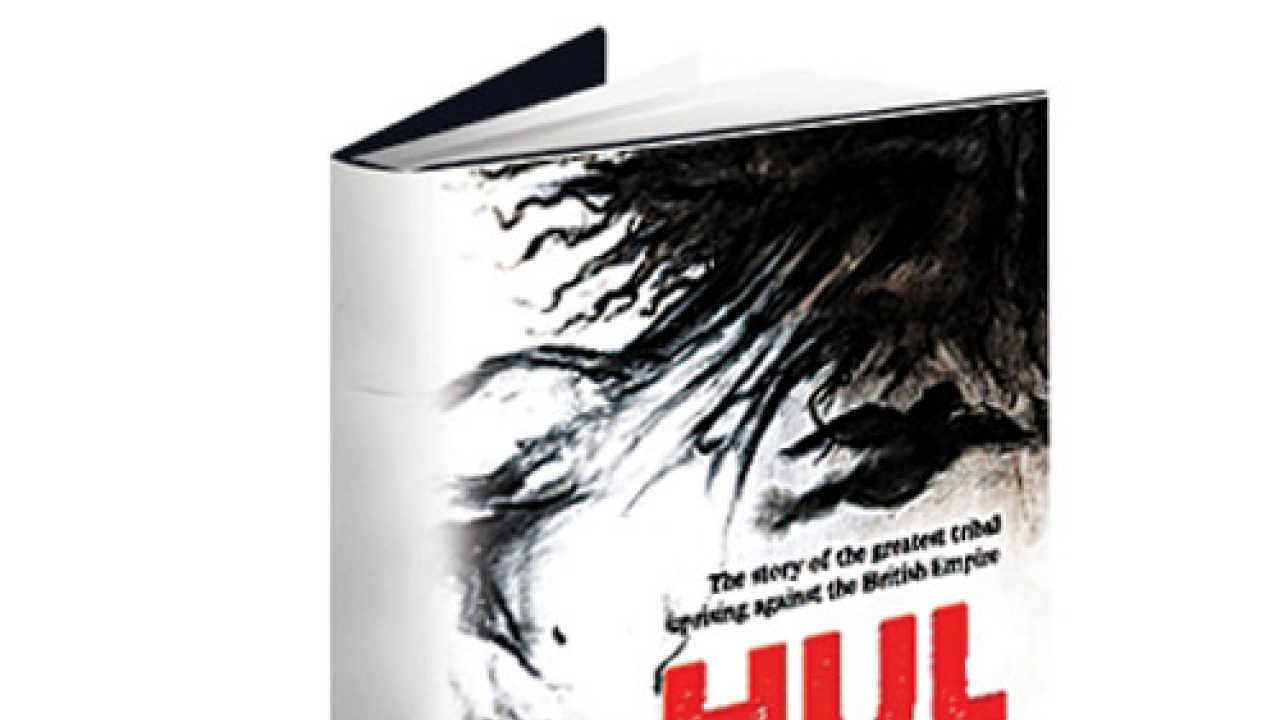
Book: Hul, Cry Rebel!
Author: Sanjay Bahadur
Publisher: Roli Books
Pages: 397
Price: Rs395
After a dream debut with The Sound Of Water, senior IRS officer Sanjay Bahadur writes an engaging historical novel. The author talks to Pratik Ghosh.
Why did you choose the Santhal rebellion, a forgotten chapter in history, for your second book Hul, Cry Rebel!?
There are a couple of reasons. First, the causes that led to the rebellion still exist. The dilemma of dislocation of tribals for setting up commercial ventures still hounds us. The problem of the so-called Red Corridor is very similar to the situation surrounding the Hul.
Even today tribals are fighting battles for preservation of their way of life, their culture and often their livelihood. There seems to be no end to oppression and exploitation. About 157 years ago their ancestors were forced to take up arms against the feudal lords and the British because their existence was threatened. This conflict between tribal aspirations and development remains unresolved.
Therefore, Hul has a present-day context. The British had a notorious track when it came to putting commerce before indigenous folks. They had virtually wiped out the Red Indians in the US and the aborigines in Australia. But, as the book shows, not every pale-skinned man was bad.
There were a few kind souls as well, like James, the young military officer. Among the zamindars, Partho Sen is compassionate. The second reason is no less compelling. There is very little mention of the Santhal rebellion in textbooks.
Imagine, 30,000 people were massacred in this armed struggle, and it is reduced to a footnote in history. At that point, the Bengali intelligentsia, waking up to European Enlightenment, didn't bother much about what was happening in the remote jungles.
The book tells you how close the battle had come to Calcutta.
Today, when there is a growing appetite for narrative non-fiction, why did you have to turn history into a novel?
My first book The Sound of Water, which was longlisted for the Man Asian Literary Prize in 2007 was literary fiction. But I didn't want to repeat a genre.
I also felt very few Indian authors writing in English have attempted historical fiction. Why not try something different? Though I am calling it historical fiction, I have taken very few liberties. More than 80 per cent of Hul is based on true events.
How did Hul come about?
During one of my trips to Jharkhand, I came across a book called the Struggle For Swaraj written by the local parish. It was a vivid account of the rebellion. Then I read PO Bodding's Santal Folk Tales On Santhal Culture.
These two formed the basis of my understanding of the history and culture of these people. During the course of research between 2007 and 2008, I also consulted several other books to give an authentic feel of that era. Since I have a demanding day job, most of it happened at night when the kids had gone to sleep. The weekends were also devoted to writing. It wasn't easy but I didn’t experience a writer's block.
What gave you the confidence to write about Santhals? How intimately do you know their society and cultural mores?
As a director in the coal ministry between 2000-04, I had the opportunity to meet the tribals and interact with them. I have also visited their villages. Though I completed the book in 2009, the exposure back then was invaluable.
Writing about sex is a tricky affair because it tends to get pornographic. You have shown remarkable restraint, and yet packed in quite a punch.
Thanks, but the sexual encounters are intrinsic to the plot.
Though the Santhal society has undergone gone massive transformations, they have always been remarkably uninhibited about things that we, the so-called civilised people, consider taboo. I wanted to tell readers that these characters aren't remote historical figures.
They existed in flesh and blood, they too had anger, jealousy and passion. When Phulia makes love to Bikram, one of the leaders of the insurrection, for the first time, it is a spontaneous expression of attraction. When they make love again after he comes back from a long journey and marries her, it's a different Phulia matured, and adept at the art of love-making because her mother-in-law had taught her some secrets. She knows how to give her man maximum pleasure.
So, what’s the next book about?
At this stage I’m not sure if it will be my next book, but I’m more than halfway into a novel where a bunch of mavericks in an ad agency take on a mean-minded corporation in a manner reminiscent of The Yes Men an American organisation that targets corporate greed in outrageously hilarious ways. The novel is intended to be light-hearted yet provocative in challenging corporate ills.